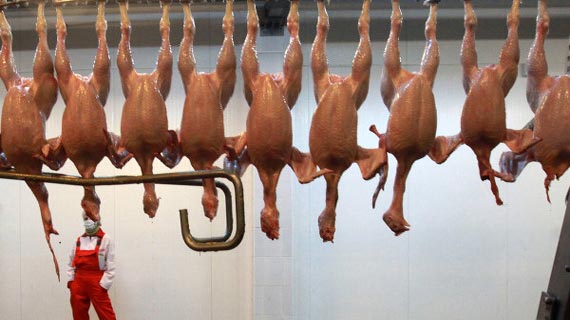
HARARE — The Zimbabwe government has introduced a law requiring importers of selected agricultural products, including poultry and sugar, to apply for licences in a bid to control imports that are flooding the local market, a senior official said last Friday.
Zimbabwean producers, whose costs are significantly higher than those of their regional and international peers due to various inefficiencies in the economy, have been lobbying the government for protectionist measures.
Industry and Commerce permanent secretary Abigail Shonhiwa said Statutory Instrument 6 of 2014, which came into effect on January 1, would apply to poultry, sugar and pork products.
“The idea is to manage these imports. Import licencing is not banning imports, but we would like to manage them so that we bring into the country what is necessary,” she said.
Through the licencing, she said the government would be able to control importation of goods and only licence where there was a gap. Shonhiwa admitted that the government was struggling to deal with the influx of cheap imported clothing and footwear, most of which were being smuggled into the country.
“Even fuel tankers are being used to smuggle bales of clothes into the country,” she said.
Measures by the government to increase tax on imported goods has had the opposite effect, triggering increased smuggling, she said.
“We even recommended burning smuggled goods instead of selling them on the market after they have been seized,” she said.
- Chamisa under fire over US$120K donation
- Mavhunga puts DeMbare into Chibuku quarterfinals
- Pension funds bet on Cabora Bassa oilfields
- Councils defy govt fire tender directive
Keep Reading
She said following consultations, it was recommended to ban importation of second hand goods.
“But I don’t believe that it is the answer, it will only encourage more smuggling,” said Shonhiwa, adding that there was need for other measures to reduce imports such as improving the quality of locally made products.
Zimbabwe’s import bill is forecast to hit $8,3 billion this year from $7,6 billion in 2013 against exports of $4,4 billion and $5 billion, respectively. — The Source










